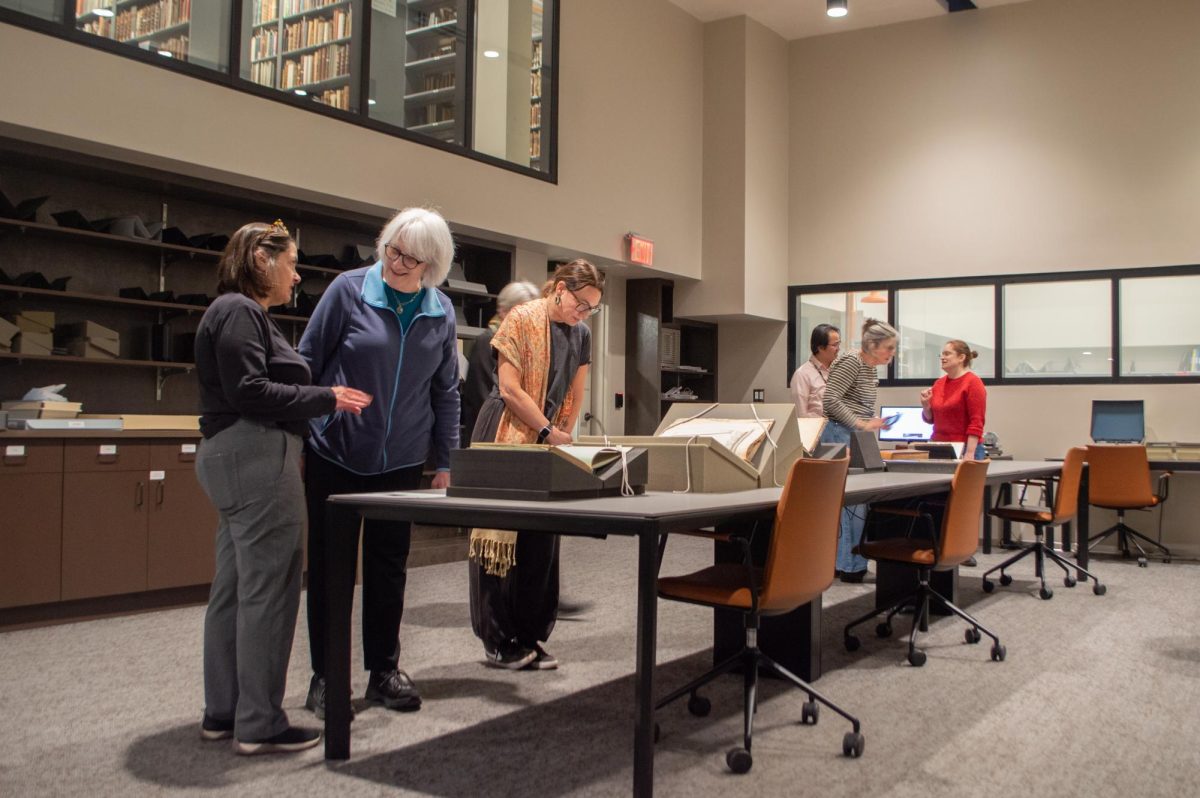
by Marian Daniells, News Staff
First comes love, then comes marriage, then comes a baby in a baby carriage. Right?
Though many sing that tune out of order, most Americans likely agree that it’s the standard method of doing things. And though the love may dwindle, the marriage fail and the kids grow up, the order is still relatively the same.
But not everywhere. Ciao, my friends. I am writing this from Florence, Italy, where I am staying with a woman and her boyfriend. They are in their late 30s and want kids, but laugh when I ask when they want to get married.
Things are different here in Italy. The state plays a different role in marriage, I guess, and the people are reacting by rejecting the tradition. And in a country that’s based on family and connections and nepotism, that’s really saying something.
Traditionally, everything in Italy was based on families. The quality of a family often determined the perceived quality of a person within that family. For example, if a man carried the name Medici, he would be perceived wealthy and powerful, even if he were the family embarrassment.
Even today, the family connection is alive and well. My host, who doesn’t want to be married, is happy to accept an apartment in the heart of Florence that her family has provided for her and is furnished by their antique chests and retro espresso machine.
My friend, Franny is not a self-proclaimed hardcore feminist, nor does she object to the religious aspect of marriage, even though she isn’t a particularly spiritual person.
Ultimately, the times are ch-ch-ch-changin’, and the idea of marriage is no longer necessary as a final destination in a relationship.
Speaking of destinations, I’m heading to France soon for two nights in the countryside and four in beautiful Paris. I’m a little intimidated by the next week because I don’t speak a word of French, except for the classic Lady Marmalade bit. And “je t’aime,” of course, which means “I love you” (right?).
I did a little research, and turns out “je t’aime” is kind of an ambiguous phrase. While it can communicate love, it also means “I like you.” French people, it seems, don’t even clearly define a difference between the two. They choose to define the term loosely and let the situation and unique circumstances determine its meaning.
And maybe that’s the way it should be. Because every situation is different from others. I love my mom differently than I love my aunt. I love my girlfriends in a very different way then my guy friends, and for different reasons. Even within those groups, I love each friend differently.
Even American culture is changing, venturing in the gray area of ambiguity. The term “hook up” can mean anything from making out to sleeping with someone. Relationships are changing. Blame growing up, blame college, blame a sexual media culture, blame lax hippie-era parents. But relationships are changing whether we consciously want them to or not. As usual, Americans are following the trends of Europeans (and for good reason. Let’s face it, Europeans are fabulously stylish) and mixing things up.
First comes love, then comes a potential baby in an Italian leather-lined baby carriage, then comes a personal commitment ceremony that has nothing to do with the state or church. Not quite as sing-songy, is it?
Personally, I’m a fan of traditional, defined relationships. I don’t find myself in them very often, but I prefer the commitment and, subconsciously, probably the title too. But I was thinking about it and I never have to sit down with one of my casual friends and have “the talk.” We don’t have to have titles or promise not to see other people. We just see each other often, share stories and secrets over crappy Stetson food and go for girls’ nights.
So why does everything in romantic relationships have to be spelled out in black and white? Why does the marriage have to precede the baby carriage? Isn’t there some sort of beauty in the ambiguity? For jealous people, it’s definitely more of a challenge, and I’m not advocating open relationships.
I guess I’m just advocating trust, trusting that someone you care about won’t hurt you, trusting that your boyfriend won’t wander away just because there isn’t a leash or a white picket fence to keep him in.
Granted, as I said before, every relationship is unique and should be defined by its own terms and circumstances. But maybe we could all benefit from a little trust.








